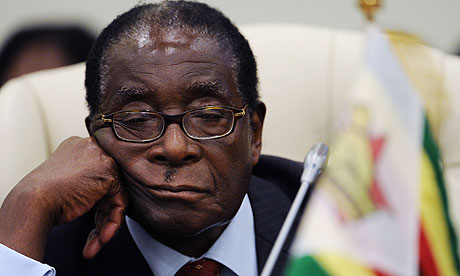
ZANU PF in its 2013 elections manifesto flaunts President Robert Mugabe’s scholarship fund that sends students to South African universities annually as a demonstration of the party’s commitment to lift education standards in Zimbabwe.
Southern Eye Editorial
However, a story we carried yesterday about 440 University of Fort Hare students left stranded after the government failed to pay their fees and living allowances raises questions if this is the best way to ensure more Zimbabweans attain university education.
The government reportedly owes the University of Fort Hare more than R40 million in outstanding fees and the students have been left “high and dry”. A majority of these students come from underprivileged families and without the stipends from the government, they have no other sources of income.
Some of the students have reportedly resorted to seeking employment as bouncers and waitresses in nearby pubs and restaurants. Authorities say the students were this year admitted into the institution without paying the minimum initial payment of R2 800 required prior to registration, in contravention of the institution’s rules.
The scholarship has also been dogged by allegations of political interference. Some of the students — including the current MDC South Africa Eastern Cape secretary-general Elisha Mutize — were pulled out of the programme for supporting opposition parties.
Mutize claimed that in cases where they received allowances, students with Zanu PF links got more money than those who were linked to the MDC formations. Mugabe appears unaware that this programme has been discredited or he knows, but does not want to admit that it has failed.
Speaking at a rally at Bulawayo’s White City Stadium on Saturday, Mugabe bragged about the presidential scholarship.
- Chamisa under fire over US$120K donation
- Mavhunga puts DeMbare into Chibuku quarterfinals
- Pension funds bet on Cabora Bassa oilfields
- Councils defy govt fire tender directive
Keep Reading
But what is happening at Fort Hare and other South African universities is a source of embarrassment for the country. The government that will emerge from the Wednesday elections must have a serious relook at this fund. Is it still necessary to continue sending students to foreign lands when the government does not have the resources to sustain them?
Besides tarnishing Zimbabwe’s image, the failure to pay fees has exposed the students to hardships and vices that might prove detrimental in their future even if they attain the degrees. Those who are forced into prostitution are exposed to HIV and Aids while others could be driven to crime.
Instead of sending students to expensive South African universities, the government must be strengthening local institutions and coming up with interventions for students who cannot pay their fees locally.










